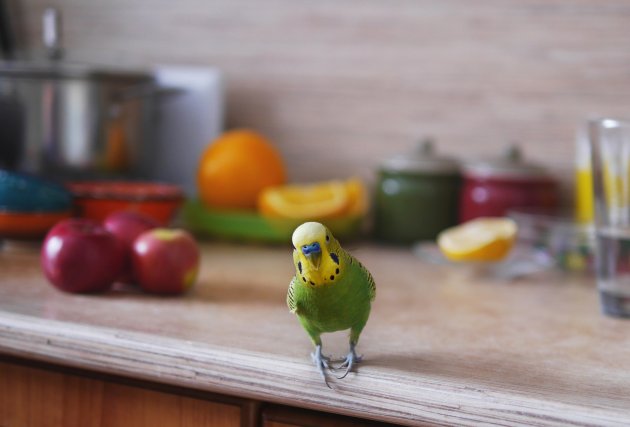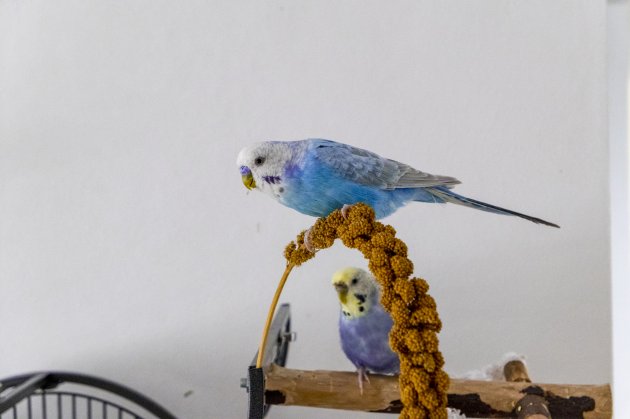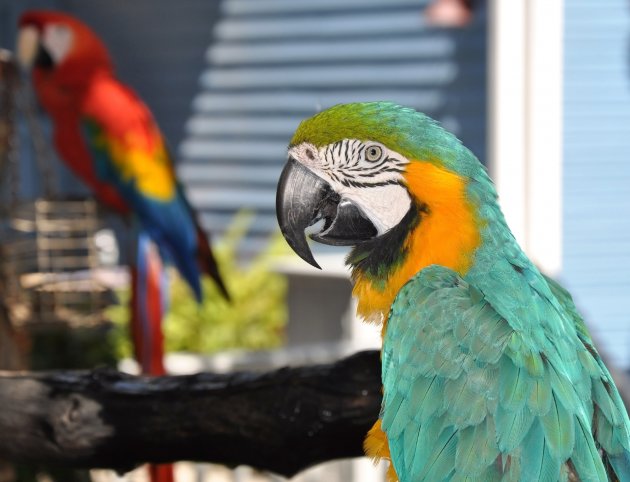Even if you acquired a spacious and comfortable home for your pet bird, there is nothing wrong with letting your bird get some time out of its cage, and what is more, some owners don’t keep their pet birds in cages at all. There is something satisfying in giving your pet bird all the freedom to roam free around your home, but how safe is it? Unbelievably, leaving a pet bird to his own devices in your home is pretty much like leaving a toddler alone. But don’t worry! There is no reason to sacrifice your pet bird’s happiness or your need to feel your pet is safe. Here at Pet Comments, we’ll give you all the tips you need to bird-proof your home, so you can spend quality time with your pet bird with nothing to worry about.

Bird-proof your home
All birds have specific necessities to accommodate, as much as they all have many things in common. You can choose to close certain areas of your home off from your bird, or bird-proof your entire house and be extremely careful with your pet bird. Do keep in mind the size and disposition of your bird. For instance, if you have a small-sized, mischievous parrot, you will likely have trouble at keeping it safe. Still, there are many arrangements you can do to make your home a safe place for your pet bird. You can apply these guidelines to your entire home or designate a specific area as “bird territory”.
1. Make Your Bird’s Safety a Family Matter
If you share your living space with family or friends, every member of the house should be aware that there is a pet bird at home. This is the easiest way to elude accidents, especially, if you have a small-sized pet bird. If it is of common knowledge that a pet bird is roaming free in the house, your family and friends will be careful to not accidentally crush your pet bird with their feet and be careful when closing the doors.
2. Establish Safety Guidelines to Handle the Pet Bird
With your pet bird roaming free at home, people might feel tempted to pet it more often. Although there is nothing wrong with petting or wanting to play with the bird, if your family or friends are not careful enough, they could accidentally hurt the bird. This is more important if you have young children at home. So, make sure that young children stay away from the pet bird, and supervise all of their interactions.

3. Eliminate All Harmful Odors
There are common odors in a house that can result in discomfort, illness, and even death of your pet bird. Compared to humans, all bird species have delicate lungs. Air-fresheners, aerosols, cigarette smoke, scented candles, potpourri, Teflon fumes, and overheated oil, to mention a few examples, could cause chronic respiratory problems in your bird. If you can’t elude some of these odors from your home, like the ones that come from the kitchen, or potpourri from the bathroom, you could close these areas for your bird's safety.
4. Keep Windows and Doors Closed
Pet birds can injure themselves by trying to fly through the glass of a window, they could get their toenails trapped in the curtains or hurt themselves by trying to get through a slightly open window. Likewise, open doors represent a safety hazard to your pet bird. Someone could accidentally crush the bird when opening or closing the door. Take closer inspection of your windows for anything that represents a safety hazard for your pet bird; long curtains, and drapery could also be dangerous for your bird.
5. Beware of Electric Devices and Cables
Birds love to chew, is a necessity for them and they need toys designed for them to chew. Sadly, many pet birds have suffered from burn accidents or have electrocuted themselves by chewing into electric cables. You can use cord protectors as a second layer of protection for both your electronic devices and pet bird. You can also hide all the cables with cord concealers and locate them in a difficult area your pet bird cannot reach.
6. Check out Other Pets
Dogs, cats, or other large pets can amuse themselves by playing hard with a bird. Birds are the natural prey of bigger animals; therefore, it is wise to keep them apart. If you have other birds as pets, even if they are from the same species, they could still not get along. If you acquire two birds together when they are still young, they could get along, but that might change when they grow up and hormones kick in. On the other side, if you already have a grown bird that has bonded with you, it will see the new bird as an intruder and attack. If you already have a pet bird at home or other pets, you better take precautions, and always ask an aviary expert before introducing your bird to a new environment.

7. Avoid Harmful Objects
Birds can be as intelligent, clever, and curious as little kids can. If something seems interesting to them they will try to take it, break it, play with it, etc. Make sure to keep an object that could be harmful to your little friend completely out of reach. Items like medicine, pills of any kind, sprays, glass bottles, small items they could choke themselves with, literally anything you would not leave around a two-year-old, hide it or lock it away.
Off-limit Areas
As much as you’d like your pet bird to follow you around all of your house; for your pet bird to be 100% safe, certain areas must remain closed to the feathery folk.
The Kitchen
For example, the kitchen is filled with dangerous areas, devices, odors, and other safety hazards for your pet bird. If you leave the entrance to your kitchen open to your bird, you risk burn accidents and asphyxia. Non-stick cookware is common in the kitchen, and this kind of cookware produces toxic fumes when you’re using them. Other supplies for the kitchen like oven cleaners have strong odors that are toxic for birds. In general, the kitchen should remain closed to your pet bird if you’d rather have a healthy bird for a very long time.
The Bathroom
Birds love water, and they’ll be thrilled to have a shower as often as you can provide; however, you should NOT let the birdy have private time in the bathroom. The reason is that there are too many risks of drowning in the bathroom. Prevent accidents by keeping the toilet lids always shut, and if you have a bathtub, keep it clean and empty when no one is using it. Even when you do your best in eliminating as many threats as you can think of from the bathroom, the best medicine is keeping your pet bird out of this area.
The Laundry Room
In your bird’s opinion, laundry baskets full of warm and soft clothes make wonderful beds. Because of this, it would be awful if you accidentally introduce your pet bird into the washer or dryer together with the clothes. The laundry room is usually filled with detergent, bleach, and other cleaning chemicals with strong odors that are dangerous for your pet bird. Keep the drier and the washer doors closed at all times when you are not using them, and be careful when you’re loading these devices with clothes.
Conclusion
Again, the easy way to keep your feathery friend out of trouble is to forbid these areas for them. Some bird species are tremendously smart, so make sure they don’t outsmart you when you’re trying to keep them safe. A free bird is a happy bird, our part is to keep that happy bird safe and healthy, and hopefully, these tips will prove to be useful for you and your pet bird.
References and further reading:
- Veterinary Medicine at Illinois. Three Household Items Toxic to Birds
- PDSA. Keeping your pet birds safe
- Merck Veterinary Manual. Household Hazards for Pet Birds - Bird Owners